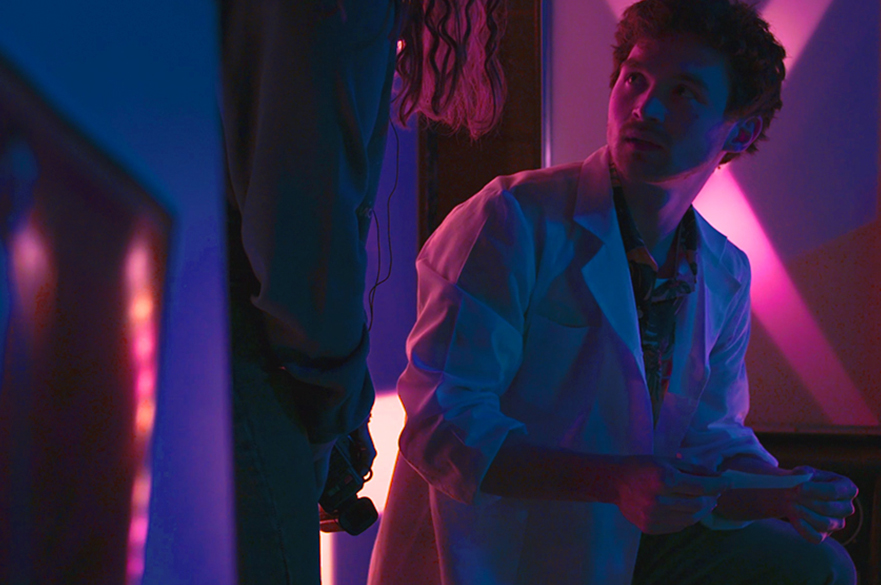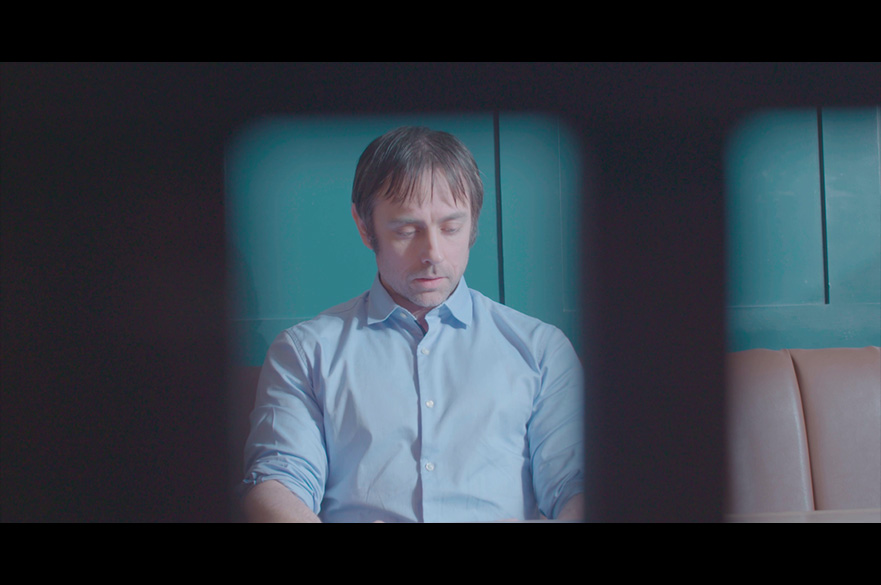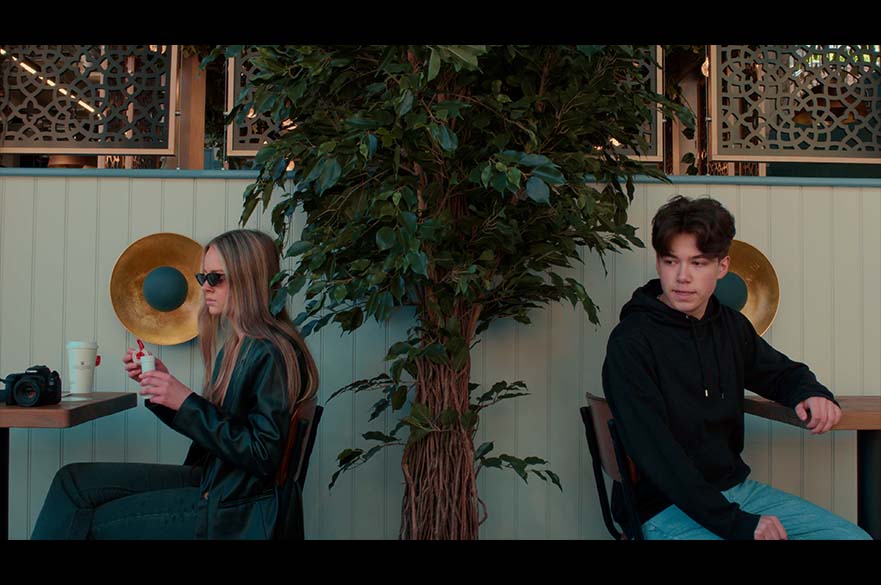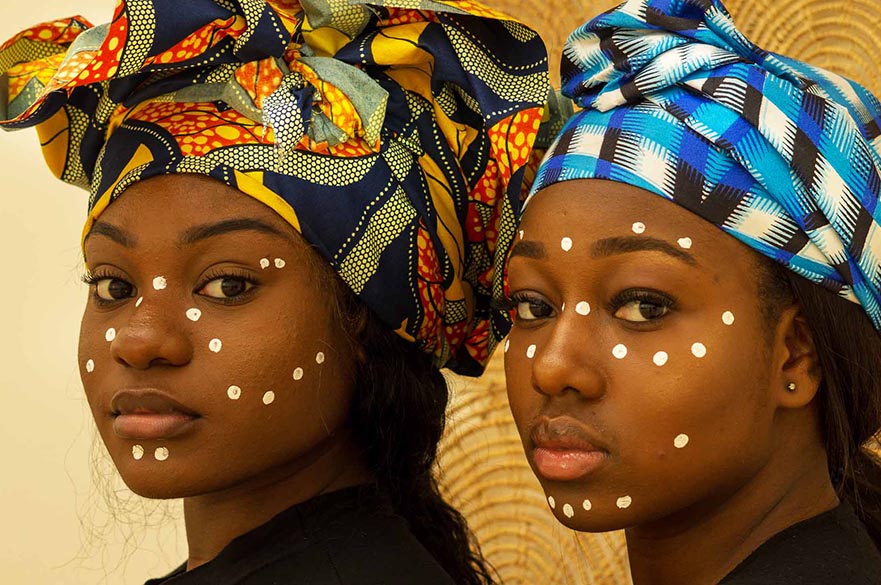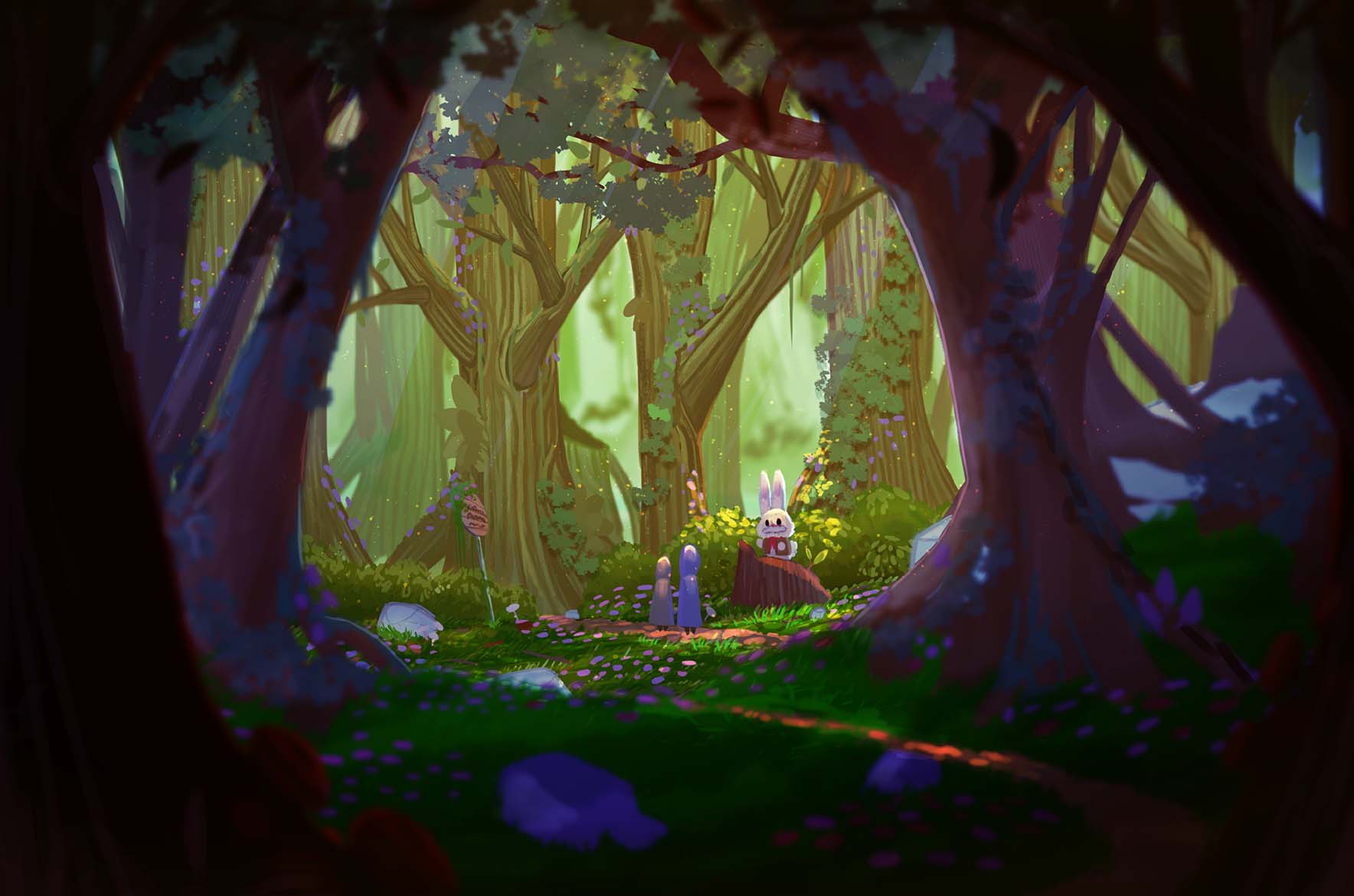This course is in Clearing
Offers from 80 tariff points
About this course
This exciting new degree has been created in response to the global success of the UK film and screen industries.
On this practical course, you'll explore all aspects of filmmaking to set yourself up for a successful career in producing, directing, writing and other key creative roles in the industry.
With guidance from our expert staff, you will develop a deep understanding of the art of filmmaking and create original, entertaining and innovative films. You will gain skills across a range of filmmaking disciplines while making drama, documentary, commercial, music video and experimental projects leading to the production of a final industry facing short film.
Throughout the course you will work on live briefs with our industry partners, learning the technical and artistic abilities required to produce a professional portfolio tailored to your career goals.
During your time here, you will be given the opportunity to showcase your work to members of the creative industries. You can view our graduating students’ showcase here.
-
You’ll have the opportunity to complete a work experience placement of up to a year in length. Dependent on the duration of your placement, you could gain an additional Diploma or Certificate in Professional Practice.
-
Optional European study trips to renowned film festivals and events. You’ll also have the chance to apply for a European or international exchange to one of our partner institutions, such as Northern Arizona University in the USA.
-
Learn in a professional studio environment, using industry-standard facilities such as high-end camera equipment and software such as the Adobe Creative suite and Davinci Resolve.
-
Course design approved by the International Moving Image Society, recognising the quality and relevance of our teaching content.
15
What you’ll study
Thanks to our New Design & Digital Arts Building, you’ll benefit from a wide range of industry-standard facilities and equipment to support your study.
There is an opportunity for students to undertake a placement year, and transfer to the Sandwich route, please see further details in the ‘Year Three’ section below.
Craft Skills and Technologies
(40 credit points)
Your introduction to digital film production equipment and techniques, with a special focus on the basics of sound, camera, and editing through practical demonstration and experimentation. You will gain both practical experience and an opportunity to explore the tools which will underpin work in successive modules running throughout the course. Alongside this, you will focus on the application of film language and grammar through technology in the creation of three short film projects in a range of genres.
Approaches to Film
(20 credit points)
Explore a range of theoretical and critical approaches to engaging with film and film cultures. Through this module, you will develop an awareness of different approaches to filmmaking and how social, cultural and political landscapes affect the filmmaker. You will do this by viewing and discussing a range of films, directors and practitioners and examining a breadth of theoretical approaches to writing about and engaging with film.
Storytelling and Production
(40 credit points)
This module focuses on storytelling and building filmmaking skills and knowledge using a variety of creative forms and technologies. Storytelling is a fundamental building block within the creative industries, critical to content-making for big and small screens. In this module, you will be introduced to the fundamentals of content development and learn how ideas are generated, refined and pitched in professional contexts.
You will progressively hone your storytelling skills and will work intensely and intensively in two key areas of film production. First, an individual documentary project with themes selected using the 17 Sustainable Development Goals drawn up by the United Nations reflecting local and global challenges of our time, and second a short drama group project.
Experimental Film
(20 credit points)
Experimental Film is designed for you to experiment with the film medium and to broaden your knowledge of avant-garde cinema. You will be introduced to alternative filmmaking approaches through a historical discussion of various movements and styles of experimentation. This module puts emphasis on filmmaking as a process, involving a dialogue between experimentation, taking risks, and critical reflection, which will be facilitated with lectures and practical workshops.
Film Production 1
(40 credit points)
Stretch your creative boundaries and self-determine your approach and output from your film production practice. You will develop confidence in self-managing your own learning and creative decision-making. This project can be an individual or small group project.
You will have the chance to develop and produce a film project by selecting from a range of briefs, encompassing fiction, documentary, or experimental genres. Through the creation of your negotiated film production, you will undertake comprehensive research and enquiry into your chosen filmmaking field, using your findings to inform your creative, technical, and practical decision-making.
Film Production 2
(40 credit points)
This module requires you to innovate and engage in cutting-edge filmmaking practice, extending your professional skillset and portfolio in preparation for the final year of your studies. This self-initiated film production project challenges you to further advance the knowledge, skills and experience gained during Film Production 1 and produce student festival standard work.
You will collaborate with peers, developing a supportive community of practice where you will challenge each other’s ideas and provide a critical sounding board for the development of innovative creative practice. To enable your complex and ambitious projects to move from inception to distribution you will professionally engage in crewing roles for each other, applying near industry-standard skills.
Co Lab: Research, Exploration and Risk-taking
(20 credit points)
Through active participation with team-based problem-solving, you will work together in mixed teams on a project where you will use your creative ideas to generate solutions to the challenge or brief. Your project will allow you to explore how creativity can make an impact in society, as you choose a theme of sustainability, social justice, enterprise and innovation or community. This collaborative learning experience will expose you to a range of new processes and approaches that will develop your creative thinking.
Optional module
You will also choose one optional 20-credit module from:
- Storyboarding
- Motion Graphics
- Responding to the Visual World
- Digital Matte Painting
- Music Video
- Sound Art & Design
- Virtual Production
- Prop Making
Optional Placement Year (Sandwich)*
We have an option for all of our students to undertake a placement year (Sandwich) and allow you to decide whether this is right for you once you have completed years 1 and 2 of your course. This time spent working in industry provides our students with crucial work experience, which is highly prized and much sought after by employers upon graduation. If you are successful in securing a placement you will have the chance to gain an additional Certificate or Diploma in Professional Practice, dependent on duration.
The additional placement year incurs a fee. For international students considering the transfer to the 4-yr SW route it’s important to seek advice from the International Student Support team and the Home Office regarding any potential visa implications and costs. For UK students, advice should also be sought regarding SLC eligibility, if applicable.
* If you choose to take the sandwich route option, you will still need to apply for this course with the full-time UCAS code: W600.
Film Crew Collaboration
(60 credit points)
This is a collaborative major project where you will work with students from BSc Film Technology to make a short film to professional standards and take on a role with an emphasis on their chosen field.
Film Professional Futures
(20 credit points)
Build on the creative work from your degree up to this point and the strategic planning completed in previous modules. You are expected to enhance your career prospects by producing creative artefacts that align your skills with their commercial and professional objectives. Industry speakers drawn from key creative sectors will offer their perspectives, helping you to make informed decisions about current employment routes.
Film Personal Project
(40 credit points)
This module provides you with the opportunity to undertake a sustained investigation into a specific area of filmmaking that builds on your previous knowledge, experience and skills acquired during levels 4 and 5. This is your opportunity to critically explore a specific issue or area of personal interest within your chosen field, allowing you to investigate individual lines of enquiry connected to your career goals.
You will achieve this by undertaking a self-initiated research project with a creative output, which is supported by tutor supervision.
We regularly review and update our course content based on student and employer feedback, ensuring that all of our courses remain current and relevant. This may result in changes to module content or module availability in future years.
Don’t just take our word for it, hear from our students themselves
Student Work
Video Gallery
How you're taught
Teaching and learning experiences will include:
- film screenings
- lectures and briefings
- studio workshops
- seminars
- tutorials
- masterclasses
- verbal and visual presentations
- individual work
- teamwork
- live projects
- study trips
- personal development planning.
Co Lab
Want real-world experience alongside your degree? Co Lab is your opportunity to work with peers from different disciplines on live projects set by industry partners. Embrace collaborative practice as you explore how creativity can make an impact in society and develop the skills employers want to see in the creative industries.
International exchanges and study trips
If you’re thinking about studying part of your degree abroad, the Nottingham School of Art & Design has exchange agreements with a number of institutions around the world.
Exchanges take place in Year Two of the course. You’ll receive guidance from the University about where you can study, and help in completing your application and arranging your exchange.
Showcase
You will be given the opportunity to exhibit your work during your time at NTU to members of the creative industries. Last year we celebrated our final year students work in our ‘We are Creatives’ showcase – you can view our graduating students’ showcase here.
How you're assessed
Depending on the module, you may be assessed through:
- design development work (prototypes, storyboards, scripts, animatics, draft edits, research)
- final project work (e.g. film, scripts, pitch packages)
- portfolio work
- reports and evaluations
- essays
- visual and verbal presentations
- production management documentation
- design journals (online / offline).
Careers and employability
Employability is a key focus of this course, with modules including initiatives such as live projects and the opportunity to exhibit your work publicly, helping to raise your profile and enhance your future career prospects.
This course will prepare you to work in the digital media field, in areas such as feature and independent film, television, heritage interpretation, advertising, music video and games production.
You will also develop transferable skills for alternative careers in media, writing, research, teaching and academia.
YouFirst – working with our Employability team
Studying a creative degree in a large university has many benefits, none more so than having access to a large employability team.
Our friendly, experienced careers consultants will work closely with you at every stage of your career planning, providing personal support and advice you won't find in a book or on the Internet. You can benefit from this at any time during your studies, and for up to three years after completing your course.
Connecting with industry and work placement opportunities
Industry professionals will visit the course to guest lecture and share their experiences. Live projects and competition briefs will help you gain real experience of the industry, make contacts, and build your portfolio and CV.
You’ll have the opportunity to complete work experience or longer placement, with the chance to gain an additional Diploma or Certificate in Professional Practice, dependent on duration. Course tutors and our Employability team are on hand to support you in applying for placement and professional practice opportunities.
Creative Industries Federation
We are members of the Creative Industries Federation (CIF), which means students in the Nottingham School of Art & Design have the opportunity to sign up to free student membership. Creative Industries Federation are an organisation that represents, champions and supports the UK’s creative industries and membership grants students exclusive access to their selection of resources and events to help advance your career and connect with industry.
The National Association for Higher Education in Moving Image Membership
Students on this course will benefit from the NAHEMI (The National Association for Higher Education in Moving Image) Membership. The membership will provide you with the opportunity to enter competitions, network with industry professionals and showcase your work at national festivals such as Encounters and Aesthetica Short Film Festival.
What our students are doing now
Filmmaking and Animation graduates celebrated at the Royal Television Society Midlands Student Awards 2024
It was a stellar night for our screen-based courses earlier this week, as NTU Filmmaking and Animation graduates won multiple awards at the Royal Television Society’s (RTS) Midlands Student Awards 2024.
University invests in ‘Mandalorian’ film technology
Campus and facilities
Our Filmmaking facilities are in the new Design and Digital Arts Building.
Our new Design & Digital Arts Building will place Nottingham as a UK hub for film, television, animation, UX design, games design, graphic design and more.
You'll have access to industry-standard facilities which include a virtual production studio, an in-camera VFX studio and a black box studio, as well as collaborative studio spaces, future technology suites and exhibition spaces.
Entry requirements
This course is in Clearing
Looking for a place in Clearing? We are accepting application and would love to hear from you!
UK students
This course is in Clearing
Looking for a place in Clearing? We are accepting applications and would love to hear from you!
Clearing requirements
From 80 UCAS tariff points from up to 4 qualifications.
To discuss our entry requirements and see what we can offer you, call us now on +44 (0)115 848 6000. Alternatively, if you already have your qualifications, apply online via our Clearing Application form.
Preparing for results day? Beat the queue and sign up for NTU Priority for up-to-date information about all things Clearing. You’ll get an offer ahead of Clearing, subject to you achieving the required grades on results day.
Other requirements:
To find out what qualifications have tariff points, please use our tariff calculator.
Additional requirements for UK students
There are no additional requirements for this course.
Contextual offers
If you don’t quite meet our entry requirements, we might be able to make you a lower offer based on a range of factors, including your background (such as where you live and the school or college you attended), your experiences and your individual circumstances (you may have been in care, for example). This is called a contextual offer, and we get data from UCAS to help make these decisions. We do this because we believe everyone with the potential to succeed at NTU should have the opportunity to do so, no matter what barriers you may face.
Meeting our entry requirements
Hundreds of qualifications in the UK have UCAS Tariff points attached to specific grades, including A-levels, BTECs, T Levels and many more. You can use your grades and points from up to four different qualifications to meet our criteria. Enter your predicted or achieved grades into our Tariff calculator to find out how many points your qualifications are worth.
Other qualifications and experience
NTU welcomes applications from students with non-standard qualifications and learning backgrounds, either for year one entry or for advanced standing beyond the start of a course into year 2 or beyond.
We consider study and/or credit achieved from a similar course at another institution (otherwise known as credit transfer), vocational and professional qualifications, and broader work or life experience.
Our Recognition of Prior Learning and Credit Transfer Policy outlines the process and options available for this route. If you wish to apply via Recognition of Prior Learning, please contact the central Admissions and Enquiries Team who will be able to support you through the process.
Getting in touch
If you need more help or information, get in touch through our enquiry form.
International students
This course is in Clearing
Looking for a place in Clearing? We are accepting applications and would love to hear from you!
Clearing requirements
From 80 UCAS tariff points from up to 4 qualifications.
To discuss our entry requirements and see what we can offer you, call us now on +44 (0)115 848 6000. Alternatively, if you already have your qualifications, apply online via our Clearing Application form.
Preparing for results day? Beat the queue and sign up for NTU Priority for up-to-date information about all things Clearing. You’ll get an offer ahead of Clearing, subject to you achieving the required grades on results day.
We accept equivalent qualifications from all over the world. Please check your international entry requirements by country.
Other requirements:
English language requirements: See our English language requirements page for requirements for your subject and information on alternative tests and Pre-sessional English.
Additional requirements for international students
If you need help achieving the academic entry requirements, we offer a Foundation preparation course for this degree. The course is offered through our partner Nottingham Trent International College (NTIC) based on our City campus.
English language requirements
View our English language requirements for all courses, including alternative English language tests and country qualifications accepted by the University.
If you need help achieving the language requirements, we offer a Pre-Sessional English for Academic Purposes course on our City campus which is an intensive preparation course for academic study at NTU.
Other qualifications and experience
If you have the right level of qualifications, you may be able to start your Bachelors degree at NTU in year 2 or year 3. This is called ‘advanced standing’ entry and is decided on a case-by case basis after our assessment of your qualifications and experience.
You can view our Recognition of Prior Learning and Credit Transfer Policy which outlines the process and options available, such as recognising experiential learning and credit transfer.
Sign up for emails
Sign up to receive regular emails from the International Office. You'll hear about our news, scholarships and any upcoming events in your country with our expert regional teams.
Getting in touch
If you need advice about studying at NTU as an international student or how to apply, our international webpages are a great place to start. If you have any questions about your study options, your international qualifications, experience, grades or other results, please get in touch through our enquiry form. Our international teams are highly experienced in answering queries from students all over the world.
Policies
We strive to make our admissions procedures as fair and clear as possible. To find out more about how we make offers, visit our admissions policies page.
